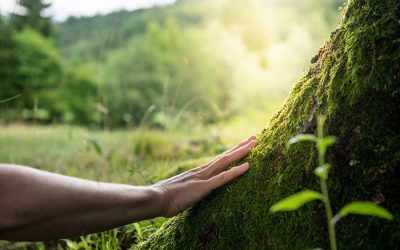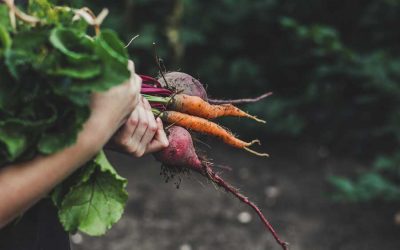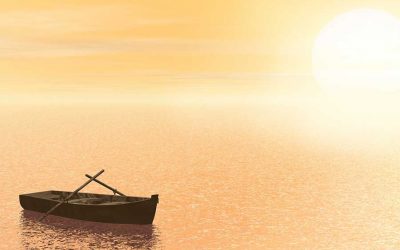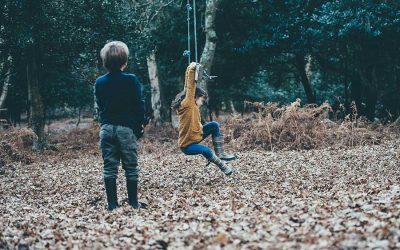Episode #14 Inner Resilience: clarity, courage & connection in the time of Corona Virus
The world is not as it was. Every one of us is touched by this. We are a global community now, striving to find sovereignty, balance – and a way forward that is healing for us all. In this podcast, we explore the routes to inner resilience, without which, there can be no outer coherence.
Joanna Macy calls this the Great Unravelling – a time when everything changes. And we are human, so most of us live somewhere on the spectrum between finding change unsettling, to finding it genuinely terrifying. Where we are on that scale is often dictated by our inner resilience: our ability to return to inner stability after a destabilising shock. So just now, when the shocks are coming daily, our ability to find resilience is critical. In this podcast, we explore some of the ways we can return to a place of inner wholeness, of balance, from which we can generate the courage, clarity, connection and compassion we’ll need to flourish in a world of uncertainty.

READ THE TRANSCRIPT
I spent the first series of this podcast outlining our thinking around conscious evolution – why it’s ready to happen, and how we can make it happen. In this second series, we’ve been talking to people who are already working in the areas that will bring us closer to the emergence from complexity that we need
But this week, we’re back to me. In the midst of a global pandemic, more than ever, is a time where the structures of late stage capitalism are being stress tested as near to destruction as they can get without actually collapsing… and that means it’s also a time when we can explore the alternatives. So I want to talk about that. Particularly I want to talk about resilience – our own personal emotional, psychological and spiritual resilience, and that of our communities.
Because we have three interlocking crises at work just now
– the climate emergency
– the ecological emergency, we’re in the 6th mass extinction – or what George Monbiot calls the first mass extermination
– and a resilience emergency
All three have a common root in our disconnection with ourselves, each other and the web of life – our lack of meaning – we don’t know what we’re here for, either as individuals or as a collective community, other than trying endlessly to fill the great, aching voids in our souls that can never be filled however much stuff we throw into them. But still we try.
Here we are, in a world on the edge of chaos and extinction – but also potentially on the edge of a change so radical, we can’t predict where it’s going. This is the premise of Accidental Gods and if this is the first time you’re hearing the ideas, I commend you to podcast 1 and its immediate successors where we lay the premise out in detail, together with the ways we think that, individually and collectively, we can begin to heal.
And healing the resilience crisis is a key part of this.
What is Resilience?
Resilience in any living system is defined as the ability to return to homeostasis after a destabilising shock. Or in less bio-centric terms, it’s our ability to keep ourselves up and running when the supermarkets are empty and the roads are eerily quiet.
The keys are – how well we return to some kind of baseline, and the amount of time it takes.
Our absolute baselines are food, water and power. So, we need to be able to feed ourselves, we need to be able to drink, and we need the absolute basics to be able to keep that going.
These are the external, existential requirements. If we can’t find food and water, the rest is academic. If we can find those, then we want to look at shelter, warmth, transport, communication – and emotional, spiritual and psychological well being.
Because these are almost as important as food and water. And internally, they are the baseline that we need to return to.
And that’s why I want to look at internal resilience first.
Internal Resilience
Our own spiritual, emotional and psychological wellbeing is something that is under our own control. It’s not about growing food or collecting water it’s about how we choose how to feel.
It is also the framework that shapes who we are and how we behave. It’s the internal dynamic that decides if we’re the ones who are fighting in the supermarket aisles for the last pack of toilet rolls – or the ones sharing the kindness hashtag and going out to help our neighbours. It’s the shape of our internal structures that decides if we’re waking up each moment with joyful curiosity, looking forward to the experience of the day ahead, or if we’re waking up with fear, dread and a sense of impending doom. And our ability to be flexible in this, to be fluid in our sense of self, is the one that defines whether we can change our internal modalities – so that even if we wake with the terror, doom and gloom, we can shift it to joyful curiosity.
And yes, if you’re a long time listener to this podcast, this may begin to feel somewhat familiar. Because at the heart of what we’re doing in Accidental Gods is a Re-Awakening into our connection with the More than Human world and we can only do that when we’re heart open. Heart opening requires – I think – that we come to understand our own agency in this – the ways we can open our hearts… we don’t have to let the world close them for us.
Changing our Personality Traits
And now in this time of chaos… we have perhaps more personal time to give to this. So I’d like to remind you of the flow from Attitude to Mood to Temperament to Personality Trait – where our Attitudes are like a spring shower that flows through and away again.. Our Moods are like the underlying weather for this week or this month. Our Temperaments are like the Seasons, – changing more slowly over time. And our Personality Traits are the climate – which is changing faster now than it was.
and we can change our own climates – our own Personality Traits – by slowly, steadily – and continuously – changing our Attitudes.
That means not just our head-mind attitudes of ‘I am choosing not to let Politician X drive me to distraction’ or ‘I’m choosing not to engage in the panic buying frenzy’ – this is – I am choosing when I wake, to lie still for as long as it takes really to light the spark of gratitude, or wonder, or joy, or compassion in my heart space and let it grow until I can feel my heart bigger, warmer, more alive…. until I can feel joy radiating out around me… and when I KNOW that feeling, I can get up and move into the flow of my day – and know that I can reach for it again, because it’s familiar.
And then I can set up triggers – environmental cues if you’re into behaviour – that will rekindle that spark – so every time I switch on a tap and connect to the water… (that’s familiar to our members, but you can do it even if you haven’t spent weeks listening to visualisations connecting you to water) – or every time I see the sun, or just see light glinting off a leaf. Or for me, walking up the stairs is a trigger – we have really steep old-cottage stairs and when we renovated our ancient farmhouse, they were bare for a long time. The day I walked up when we’d first had carpets put down, I felt a real sense of joy as I turned the corner at the top. And I remembered it, and re-kindle it every time i go upstairs .. and I work from home, so that’s a lot of times in a day… and each time, I feel joy, and I spend the next few minutes letting it grow and consciously sending it out to my local area, to my local nation… around the world.
These are small things, but the sum total, in terms of how it shifts the dynamic of the day, becomes huge. And I think the sum total in terms of how it shifts our world, could be totally transformative.
The Power of Imagination
Because we live in a world that is shutting us down. I just recorded a podcast with Rob Hopkins, author of ‘From what is to what if’ – I am hoping to goodness that the sound recording worked, because it was gold dust, but just in case not, I want to share one aspect of his book (you need to read his book anywya. Really. But for now, we need to know that the Hippocampus – the tiny bit of our brain that looks like a sea horse – is the seat of our imagination. This is the place where we experiment with different possible futures.
But is shuts down if we’re stressed. So if we’re in sympathetic overload, if our systems are flooded with cortisol – we can’t imagine the better, more beautiful worlds our hearts know is possible. And we need to imagine those – because otherwise we’re sleepwalking to Max Max and 28 Days later. We know how the bad things pan out. We don’t yet know how the good things do and partly this is a failure of our collective imagination.
Just now, when things are in crisis is a time – perhaps – when we can be less stressed. Or when we realise that things matter other than the constant sprinting on the hamster wheel of late-stage disaster capitalism. This is when we can do other things. When we can find it in ourselves to help our neighbours – when the skies over Wuhan turn blue again instead of constant industrial-smog-grey. All of these can be turned into cliches and cutesy facebook memes… of course they can – but they could also be the seeds of change that means this disaster doesn’t see us sleepwalk back to where we came from – it sees us step off into something new, and generative, where we and the planet flourish.
So – I would say that our personal resilience – our own individual ability to bounce back from destabilising shocks – is as much linked to our ability to envisage a future full of hope as it is anything else. In Rob’s book, a Transition activist and artist, Lucy Neal says, ‘Joy is a radical force because it connects us all to life, and life is enthusiastic for life.’ She says we’ll be on the right path when we wake every morning, in joyful expectation of the day ahead, wondering what life brings.
Joyful Anticipation
And I invite you imagine how that might feel. What would your life be like if you woke in the morning in joyful anticipation of how the day might pan out? Of what life might bring?
I invite you, in fact, to take some time out for yourself however you can and whenever you can – soon – and really let yourself imagine what it might feel like to wake with a sense of joyful anticipation of the day ahead. If it helps, write it down, or paint it, or sing it, or mould a shape in clay or play it on your guitar… whatever you do, Rob Hopkins suggests that when you play like the, you have constraints – only allow yourself to respond to every utterance with a ‘What if’ or a ‘yes – AND!’
Start with What if I woke tomorrow morning with a sense of joyful anticipation? What would I feel like? Really, at every level, what would I feel like physically? Emotionally? What does joyful anticipation feel like? Where does it zing inside? where do I feel myself come alive? How does my sense of self change if I’m liberated from the grinding sense of responsibility, or doom, or terror? What’s stopping me? If I let go of the ‘yes, buts’ – and instead try ‘yes – and’ – what happens? Please really look into this. Because – and I realise I’m beginning to sound like a broken record on this – but no problem is solved from the mindset that created it – and we need to solve the problems of our world, so we need the liberation this creates – the spaces it opens up.
So really go for this – how would the world be if you woke up every morning with a sense of joyful anticipation, looking forward to what the world brings?
What would it take for you to get there? Really?
Not winning the lottery or being given the perfect job or meeting the perfect partner? But inside, what internal switches could you flip – just for a moment or two to make that shift. There will be bits of you that resist. Our internal judges are great at finding all the reasons we can’t or shouldn’t or mustn’t do this – the responsibilities we have, the way the world doesn’t support us, the way it’s unfair or unbalanced or stacked against us.
But if you were to set those aside, just for a moment? How would it feel? If you were to feel gratitude, or awe or wonder or compassion – how would they feel – because each of these lightens our internal load and heads us in the direction of life, of turning towards life in the way Della Duncan described in our tenth podcast.
I do know this is not easy. There are mornings when it takes me half an hour of really focussed attention to ease my way through the fog of despair and dread and ‘it’s all going to crash horribly around us’ feelings into a feeling of wonder or joy or gratitude. And I’ve had a lot of practice at this. And I work from home. And I only have one working cocker and a smallholding of livestock tapping their paws, feet and toes for me to get up and get on. So I wake earlier than I used to, to give me time. And yes, this is a privilege. But if you have even five minutes to give to this, for your own sakes, please do it. Notice through the day the things that bring you joy or lead you into wonder, or gratitude or joyful care –
Anything. However small, however fleeting. See it, notice it, store it inside. And then in the morning, between waking and rising, rekindle that into a sense of that gratitude or awe, or compassion or joy in your heart space. Let it grow.
If you’re having trouble with this we’ve got a couple of meditations on the website that are designed to really help you with this. I’ll link to them in the shownotes.
SO that’s the first bit of our resilience – is setting our own internal weather to set our own seasons to set our own climate – knowing we have agency and choice.
The Power of Creativity
Together with this – I want to take a moment to explore creativity. Partly that’s because I’ve just spent two hours talking to Rob Hopkins and I’m deeply afraid the sound hasn’t recorded, so I want to share some of what he said.
Boiled down, the take home message was
– climate change, the sixth mass extinction – and the pandemic that arises from these – are faults of the imagination. We are where we are because we can’t collectively imagine anything different or better.
And yet, when we are given the space and time we are astonishingly creative – both individually and together.
So what can we do to unleash our creative imaginations? one thing is to change our internal weather so that we have a sense of the world opening up.
On the way to that, there are things we can do to halt the impact of what Rob calls – and I’m paraphrasing – the neoliberal dis imagination machine run by people who went through a school system explicitly designed to destroy our imaginations.
We know that our attentions are being destroyed – and that, broadly, if we have the attention span of a gnat, then we are not able to be creative.
So one of the absolute keys to freeing up our creativity is to get off social media and the steady diet of TV – neither of these requires any kind of imagination. Switch off the phone and do something that exercises your hippocampus. write, paint, draw, make music, sing, throw pots, whittle bits of stick… read a book – it’s a co-creation in ways that watching television can never be: I take the many dimensions of a story inside my head and make black marks on white paper and you pick up those marks and make a story in your head that may look and feel and taste and smell *entirely different* to the one in my head… how often have you seen the film of a book you’ve loved and it’s just been… wrong? because the living, breathing world in your head was different to the one the director had in her head.
So reading is creative. But so is walking outside. Find a tree. lean against it. Look up through the leaves and let your mind soar free. Ask yourself some what if? questions and play with the answers. What if we didn’t have to work? What if we lived in the same kind of interdependent, loving communities as our most ancient ancestors… but with modern technology?
Give yourself some boundaries – Rob says if you ask most people to sit down and tell a story, they get lost. But if you ask them to tell the story of the otter that spends its time pulling the bits of plastic out of the river so her friends don’t have to swim through them and one day she finds…. fill in the blank – people are off and running. So your strictures are that you can only answer your original ‘what if’ with another what if or a ‘yes and’. Rob did this with the clothing company Patagonia, which is already really sustainable. But they had some days away in the wilderness with the question ‘what if we really responded to the climate emergency NOW’ – and those same strictures…. and they came back with ideas that are being worked on as we speak.
So play games. Let your mind out. ‘What if our community could grow enough food to feed itself? What if we could make all our own power and didn’t need big power companies or any fossil fuels? What if all fossil fuel companies stopped tomorrow? What if the planes were all grounded? What if we could make the world a generative, regenerative place where everyone, human and non-human, could flourish
these two things – finding internal balance and a generative heart space – and being able to imagine a future we actually want… are the keys to internal resilience.
With these, we can come back to a stable baseline in the face of the shocks – and we can help other people do to the same.
And then we can begin to look at community resilience. I’ve talked enough now. I’ll look at the wider picture in the next podcast.
In the meantime, stay well. Stay whole. If you have more space in your life, use it wisely. Re-Awaken your connection to the natural world, the web of life. Grow into greater internal coherence. Imagine a world where everyone flourishes. And then let’s see what we can do to make it happen.
For now, Thanks to Caro C for the music at the head and foot of the podcast and for the sound production. Thanks to Faith Tilleray for designing the website and for being the other half of the creative team that is Accidental Gods. And thanks to you, for listening. We wouldn’t be here without you.
YOU MAY ALSO LIKE THESE RECENT EPISODES
Eco-Spirituality – Exploring Deep in the Woods of the Divine with Woodford Roberts and Rupert Read
In this deep, thoughtful conversation, two of the men at the heart of the Climate Majority Project discuss their own journeys into eco-spirituality – what they believe it to be and why it’s a core, foundational bedrock of their lives.
What do we really think about Food? Revolutionising what we eat with Sue Pritchard of the Food, Farming and Countryside Commission
This conversation was sparked by the FFCC’s inspiring Food Conversation – which brings together ordinary people and begins to unpick the web of deceit surrounding our food – and replaces it with something that is real and decent and nourishing on a physical and systemic level.
How do we live, when under the surface of everything is an ocean of tears? With Douglas Rushkoff of Team Human
Douglas Rushkoff shares with us the palpable “ocean of tears” lurking beneath the surface of our collective consciousness—a reservoir of compassion waiting to be acknowledged and embraced. His candid reflections on the human condition, amidst the cacophony of a world in crisis, remind us of the importance of bearing witness to the pains and joys that surround us. He challenges us to consider the role of technology and AI not as tools for capitalist exploitation but as potential pathways to a more humane and interconnected existence.
Evolving Education: Building a Doughnut School with Jenny Grettve of When!When!
Jenny Grettve’s heart-mind is huge and deep and we explored many areas of the transformation that’s coming, from the evolution of a primary school along Doughnut Economic lines to the future of architecture, to the role of systems thinking in our political, social and, in the end, human, evolution. It was a truly heart-warming conversation and I hope it helps you, too, to think to the edges of yourself.
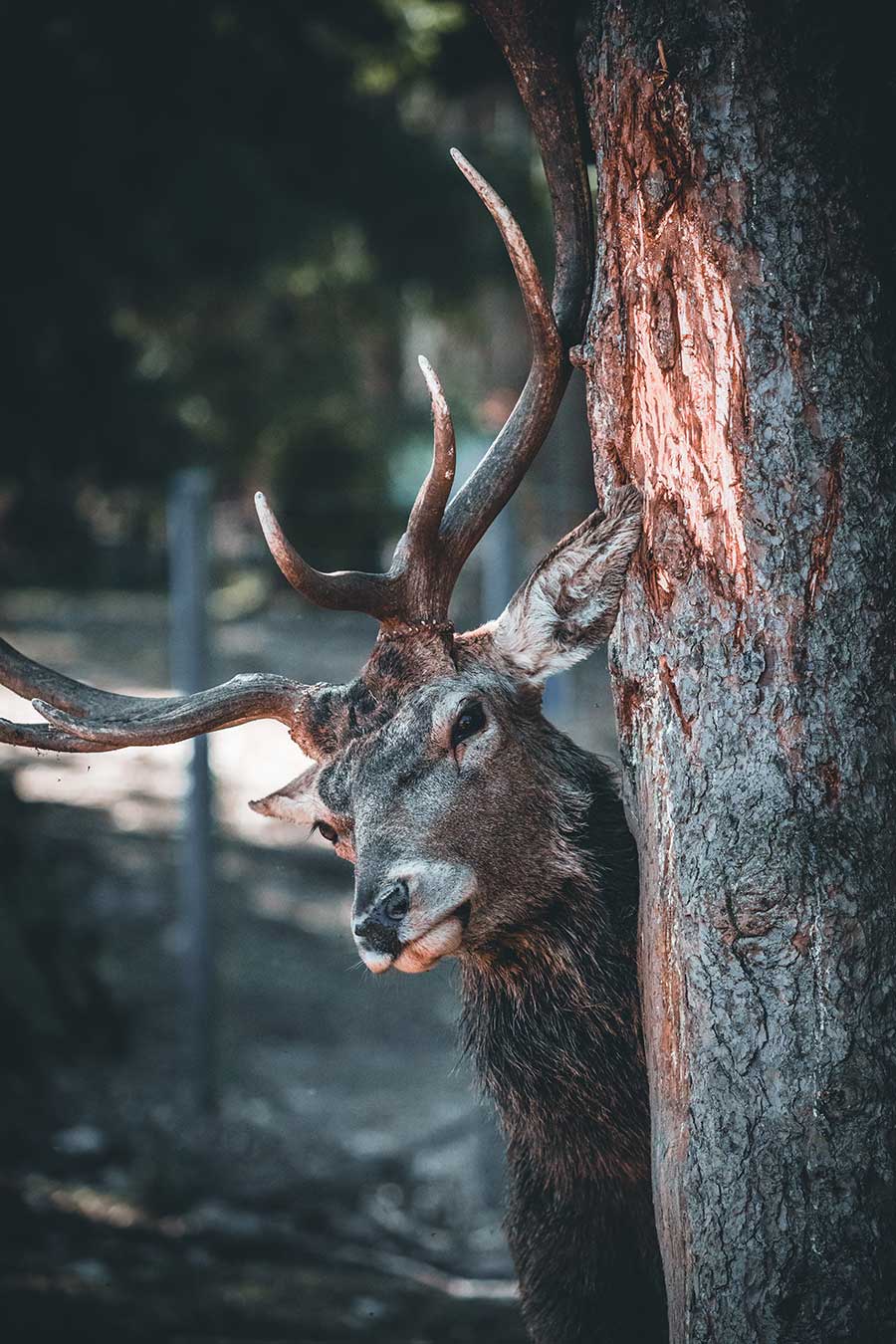
STAY IN TOUCH
For a regular supply of ideas about humanity's next evolutionary step, insights into the thinking behind some of the podcasts, early updates on the guests we'll be having on the show - AND a free Water visualisation that will guide you through a deep immersion in water connection...sign up here.
(NB: This is a free newsletter - it's not joining up to the Membership! That's a nice, subtle pink button on the 'Join Us' page...)
